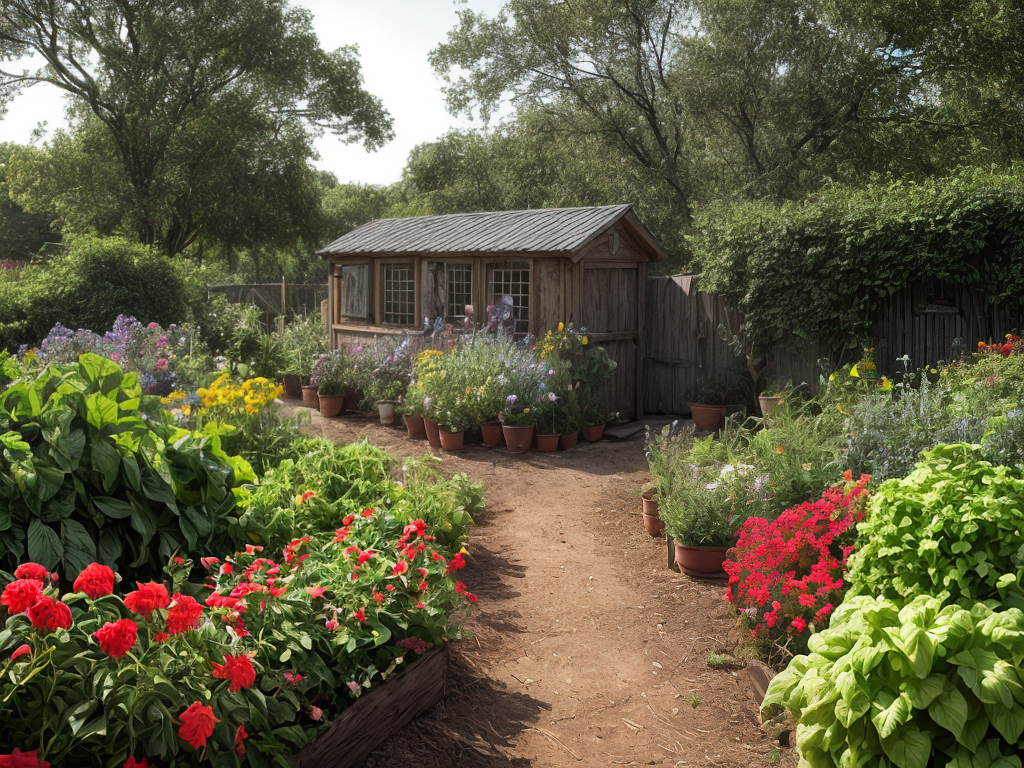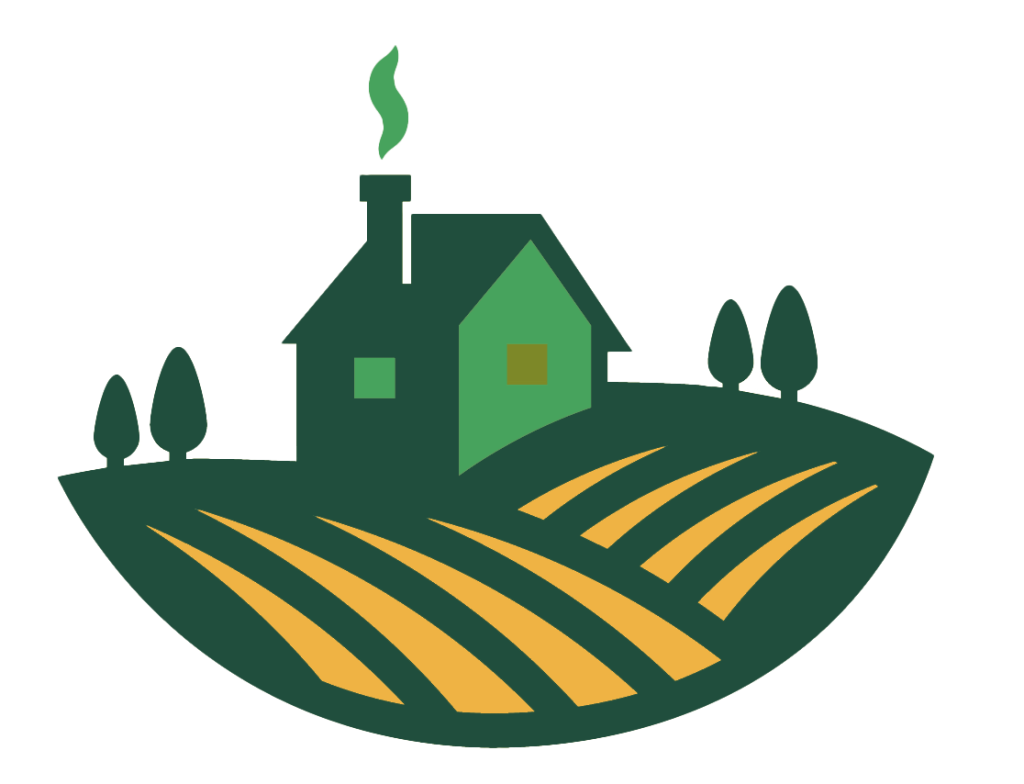
As an avid organic gardener, I know the importance of using natural pest control methods. Did you know that conventional pesticides can linger in the soil for years, affecting the health of plants, beneficial insects, and even our own well-being? That’s why I choose natural pest control for my garden. By avoiding harmful chemicals and promoting a healthy ecosystem, I can maintain soil quality, protect beneficial organisms, and minimize health risks. Join me as I explore the benefits of natural pest control in organic gardening.
Environmentally Friendly Pest Control Options
One of my favorite environmentally friendly pest control options for my organic garden is using beneficial insects. These tiny creatures are nature’s own pest control experts, keeping harmful insects in check without the need for chemical pesticides. Beneficial insects, such as ladybugs and lacewings, feed on aphids, mites, and other pests that can damage crops. They are eco-friendly solutions that promote a balanced ecosystem in the garden. Another natural pest deterrent I rely on is companion planting. By carefully selecting plants that repel pests, such as marigolds for repelling nematodes, I create a barrier against unwanted insects. These natural pest control methods not only protect my plants but also safeguard the environment by avoiding the use of harmful chemicals.
Protecting Beneficial Insects and Organisms
To protect the beneficial insects and organisms in my organic garden, I take several measures to ensure their well-being. Here are three important steps I follow:
-
Provide a diverse habitat: I create a garden that offers a variety of plants, flowers, and shrubs to attract and support pollinators like bees and butterflies. By having a range of plants with different flowering times, I can ensure a continuous food source for these important insects.
-
Avoid harmful pesticides: I refrain from using synthetic pesticides that can harm both beneficial insects and natural predators. Instead, I opt for natural pest control methods, such as neem oil or insecticidal soaps, which are safer for the environment and do not harm beneficial insects.
-
Encourage natural predators: I welcome natural predators like ladybugs, lacewings, and praying mantises into my garden. These insects feed on harmful pests, helping to keep their populations in check. I also provide suitable habitats, such as piles of leaves or rocks, for these predators to live and reproduce.
Avoiding Harmful Chemicals in Your Garden
When it comes to pest control in your garden, it is important to consider the use of organic pesticides instead of chemical ones. Organic pesticides are derived from natural sources and do not contain harmful chemicals that can negatively impact the environment. By opting for natural pest control methods, you can avoid the risks associated with chemical pesticides and create a safer and healthier environment for your plants, beneficial insects, and yourself.
Organic Vs. Chemical Pesticides
I prefer using organic pesticides over chemical ones to avoid harmful chemicals in my garden. When it comes to organic farming and natural pest management, there are several reasons why organic pesticides are a better choice:
- Safety: Organic pesticides are made from natural ingredients, such as plant extracts and essential oils, which are safe for humans, pets, and beneficial insects.
- Environmental impact: Chemical pesticides can contaminate soil, water, and air, harming not only pests but also beneficial organisms. Organic pesticides, on the other hand, have minimal impact on the environment.
- Long-term effectiveness: Chemical pesticides may provide quick results, but their effectiveness diminishes over time as pests develop resistance. Organic pesticides work by targeting specific pests and their life cycles, ensuring long-term control.
Impact on Environment
Using natural pesticides for organic gardening allows for the avoidance of harmful chemicals in your garden, thereby minimizing the negative impact on the environment. By opting for natural pest control alternatives, you are taking a proactive step towards reducing the ecological impact of your gardening practices.
Chemical pesticides can have detrimental effects on the environment, including contamination of soil, water, and air. They can harm beneficial insects, pollinators, and wildlife, disrupting the delicate balance of ecosystems. On the other hand, natural pesticides are derived from organic sources, such as plants, minerals, or beneficial insects, making them safer for the environment.
To better understand the difference between chemical and natural pesticides, let’s take a look at the table below:
| Chemical Pesticides | Natural Pesticides |
|---|---|
| Contain synthetic chemicals | Derived from organic sources |
| May persist in the environment | Biodegradable and environmentally friendly |
| Can harm beneficial insects and wildlife | Safe for beneficial insects and wildlife |
| Require careful handling and disposal | Safer for humans and pets |
Maintaining a Healthy Ecosystem
To maintain a healthy ecosystem, it is essential to prioritize natural pest control methods in organic gardening. By choosing natural pest control, we can ensure that we are not disrupting the delicate balance of nature and promoting ecological harmony. Here are three reasons why natural pest control is crucial for maintaining a healthy ecosystem:
- Preservation of beneficial insects: Natural pest control methods target specific pests, allowing beneficial insects like ladybugs and lacewings to thrive. These insects play a vital role in pollination and pest control, contributing to a healthy and diverse ecosystem.
- Protection of soil health: Chemical pesticides can harm soil microorganisms and beneficial insects, affecting the overall health of the soil. Natural pest control methods focus on preserving soil biodiversity, allowing it to maintain its natural fertility and vitality.
- Prevention of water pollution: Chemical pesticides can contaminate water sources, causing harm to aquatic organisms and disrupting the aquatic ecosystem. Natural pest control methods minimize the use of harmful chemicals, reducing the risk of water pollution and safeguarding the health of aquatic life.
Preserving Soil Quality and Nutrient Balance
While preserving a healthy ecosystem, it is important to focus on preserving soil quality and nutrient balance in organic gardening. Preserving soil fertility is crucial for the long-term success of any organic garden. Organic gardening techniques such as composting, crop rotation, and cover cropping can help maintain soil health and nutrient balance. Composting allows for the recycling of organic materials, enriching the soil with essential nutrients. Crop rotation helps prevent nutrient depletion by alternating crops each season, reducing the risk of pests and diseases. Cover cropping involves planting specific plants to protect and improve the soil, preventing erosion and adding organic matter. By implementing these organic gardening techniques, gardeners can preserve soil quality and ensure a rich, nutrient-dense environment for their plants to thrive.
Minimizing Health Risks for Humans and Pets
I prioritize the safety of both humans and pets by utilizing natural pest control methods in my organic gardening practices. By minimizing pesticide exposure, I am able to create a healthier environment for everyone involved. Here are some ways I achieve this:
-
Use of natural alternatives: Instead of relying on synthetic pesticides that can be harmful to humans and pets, I opt for natural alternatives such as neem oil, garlic spray, or diatomaceous earth. These options are effective in controlling pests while being safe for humans and pets.
-
Encouraging beneficial insects: I attract beneficial insects like ladybugs, lacewings, and praying mantises to my garden. These insects help in controlling pest populations naturally, reducing the need for chemical interventions.
-
Regular monitoring and early intervention: By regularly inspecting my plants for signs of pest infestations, I am able to catch any problems early on. This allows me to address the issue promptly and prevent it from escalating, without resorting to harmful pesticides.
Supporting Sustainable and Organic Practices
By promoting sustainable and organic practices, I ensure that my gardening methods align with my commitment to a healthier and more eco-friendly environment. Supporting sustainable practices in organic gardening brings numerous benefits. Firstly, it helps to protect the soil and water quality by avoiding the use of synthetic chemicals and pesticides that can have harmful effects on the environment. This promotes biodiversity and the natural balance of ecosystems. Secondly, organic gardening supports the health of pollinators, such as bees and butterflies, which are essential for the reproduction of plants. By avoiding chemical pesticides, I create a safe environment for these beneficial insects to thrive. Lastly, organic gardening practices contribute to reducing carbon emissions and mitigating climate change. By using compost and natural fertilizers, I enrich the soil, improve its structure, and sequester carbon. Overall, supporting sustainable and organic practices in gardening is not only beneficial for the environment but also for our own health and well-being.
Promoting Biodiversity in Your Garden
Supporting sustainable and organic practices in my garden, I promote biodiversity through various methods. Here are some effective ways to attract a diverse range of beneficial organisms and promote a thriving ecosystem:
-
Companion planting: By interplanting complementary species, I create a natural pest control system. For example, planting marigolds alongside tomatoes can deter pests like nematodes.
-
Creating habitat: I provide shelter and food sources for beneficial insects, birds, and other animals. Installing birdhouses, creating brush piles, and leaving flower stalks in the garden can attract a wide variety of wildlife.
-
Attracting pollinators: I cultivate a garden that is rich in nectar and pollen-producing plants, such as lavender, sunflowers, and wildflowers. These plants attract bees, butterflies, and other pollinators, which are essential for fruit and seed production.
Effective Pest Control Methods for Organic Gardening
To effectively control pests in organic gardening, implementing natural pest control methods is essential. Natural pest control techniques rely on biological pest control rather than the use of synthetic chemicals. One effective method is the use of beneficial insects, such as ladybugs and lacewings, which feed on pests like aphids and mites. Another technique is companion planting, where certain plants are grown together to deter pests. For example, marigolds can repel nematodes, while basil can repel flies and mosquitoes. Physical barriers, such as row covers and netting, can also be used to protect plants from pests. Additionally, crop rotation can disrupt pest life cycles and reduce their populations. By utilizing these natural pest control methods, organic gardeners can effectively manage pests without harming the environment or compromising the organic integrity of their crops.


